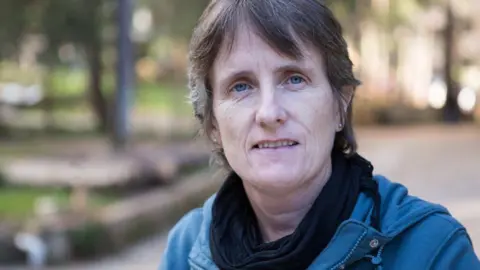Georges Abdallah, a 74-year-old Lebanese educator and long-time supporter of the Palestinian cause, is set to be released from a French prison on Friday after serving 41 years behind bars. His case has become emblematic of political tensions surrounding the Israeli-Palestinian conflict, with Abdallah recognized as "the man who has spent the longest time in prison for events linked to this struggle," according to his legal team.
Arrested in 1984 and convicted in 1987 for his connection to the murders of two diplomats—one American and one Israeli—Abdallah's name has faded from broader public memory but remained significant among Marxist-Leninist activists advocating for his release. Despite being eligible for parole since 1999, his repeated requests for freedom were denied, largely due to alleged pressure from the United States and Israel.
In a recent interview from his cell located in the Pyrenees, Abdallah reflected on his mental resilience during his long incarceration, attributing his sanity to his commitment to the Palestinian cause. His prison walls adorned with Che Guevara imagery and notes from international supporters attest to his steadfast beliefs amid years of isolation.
Born into a Christian family in northern Lebanon, Abdallah became actively involved with the Lebanese Armed Revolutionary Factions (LARF) in the late 1970s, targeting Israeli and U.S. interests during intense regional conflict. His group's actions, which included the assassination of diplomats, set off a significant fallout prompting his arrest and a life sentence.
Over the decades, efforts for his release encountered political roadblocks, particularly in light of international diplomatic relations. The turning point came when a French appeals court recently deemed his lengthy imprisonment "disproportionate," allowing for his release under the condition of immediate deportation to Lebanon.
Advocates for Abdallah’s release, including 2022 Nobel laureate Annie Ernaux, have criticized the judicial system and international pressures that delayed his liberation, voicing the sentiment that his case represents a stain on France’s justice system. Reflecting a broader issue, reports indicate that no Palestinian prisoner, even in Israeli custody, has been incarcerated for as long as Abdallah has been.
The soon-to-be ex-convict’s release marks a new chapter but raises questions about the intersection of justice, political influence, and the ongoing complexities surrounding the Israeli-Palestinian conflict.
Arrested in 1984 and convicted in 1987 for his connection to the murders of two diplomats—one American and one Israeli—Abdallah's name has faded from broader public memory but remained significant among Marxist-Leninist activists advocating for his release. Despite being eligible for parole since 1999, his repeated requests for freedom were denied, largely due to alleged pressure from the United States and Israel.
In a recent interview from his cell located in the Pyrenees, Abdallah reflected on his mental resilience during his long incarceration, attributing his sanity to his commitment to the Palestinian cause. His prison walls adorned with Che Guevara imagery and notes from international supporters attest to his steadfast beliefs amid years of isolation.
Born into a Christian family in northern Lebanon, Abdallah became actively involved with the Lebanese Armed Revolutionary Factions (LARF) in the late 1970s, targeting Israeli and U.S. interests during intense regional conflict. His group's actions, which included the assassination of diplomats, set off a significant fallout prompting his arrest and a life sentence.
Over the decades, efforts for his release encountered political roadblocks, particularly in light of international diplomatic relations. The turning point came when a French appeals court recently deemed his lengthy imprisonment "disproportionate," allowing for his release under the condition of immediate deportation to Lebanon.
Advocates for Abdallah’s release, including 2022 Nobel laureate Annie Ernaux, have criticized the judicial system and international pressures that delayed his liberation, voicing the sentiment that his case represents a stain on France’s justice system. Reflecting a broader issue, reports indicate that no Palestinian prisoner, even in Israeli custody, has been incarcerated for as long as Abdallah has been.
The soon-to-be ex-convict’s release marks a new chapter but raises questions about the intersection of justice, political influence, and the ongoing complexities surrounding the Israeli-Palestinian conflict.




















